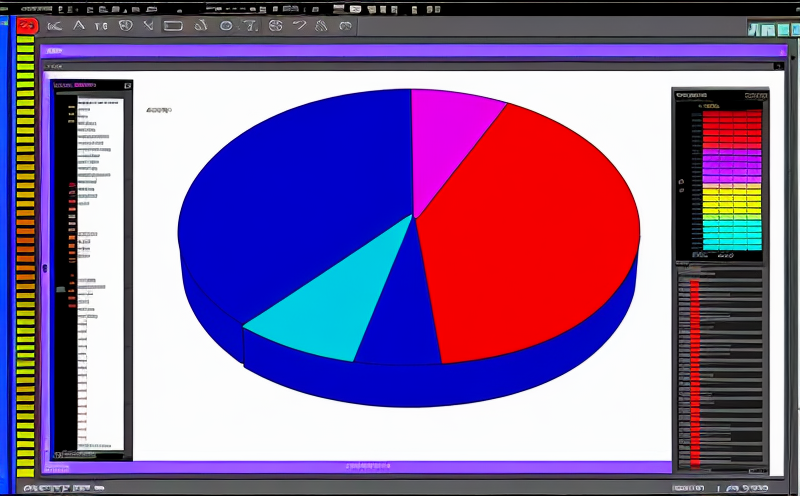DIN EN ISO 11357 DSC Thermal Analysis of Plastics
The DIN EN ISO 11357 standard provides a detailed method for performing Differential Scanning Calorimetry (DSC) to analyze the thermal properties of plastics. This technique is widely used in the chemical testing sector, particularly by quality managers and R&D engineers responsible for ensuring product integrity and compliance with international standards.
The primary focus of this service is to determine the melting point, crystallization temperature, glass transition temperature, heat capacity, and enthalpy changes during heating or cooling cycles. These parameters are crucial for understanding the thermal behavior and stability of plastic materials under various conditions.
DSC measures the difference in heat flow between a sample material and an empty reference cell as both are heated or cooled at a constant rate. The temperature difference between the two cells is monitored, allowing for precise determination of specific heat capacity changes associated with transitions such as melting, crystallization, and glass transition.
The test setup typically involves placing the plastic specimen in a hermetically sealed aluminum pan within the DSC instrument. The sample is then subjected to a controlled temperature ramp while the system measures the heat flow differences. This data is used to generate a thermogram, which provides graphical representation of thermal events and their corresponding temperatures.
The DIN EN ISO 11357 standard specifies precise conditions for specimen preparation, including temperature conditioning, sample weight, and pan type selection. It also outlines detailed procedures for running the DSC experiment, ensuring consistent results across different laboratories.
Understanding these parameters helps in optimizing manufacturing processes, improving product quality, and enhancing durability under varying environmental conditions. For instance, precise knowledge of the melting point can aid in selecting appropriate processing temperatures to avoid degradation. Similarly, the crystallization temperature informs on cooling rates necessary for achieving desired mechanical properties.
Compliance with DIN EN ISO 11357 standards is essential for manufacturers aiming to meet regulatory requirements and ensure product performance across diverse applications. This includes automotive parts, packaging materials, electronics components, and medical devices where thermal stability plays a critical role in ensuring safety and reliability.
The use of DSC allows for detailed investigation into the crystallization behavior of semicrystalline plastics, providing insights into molecular structure formation during cooling. Additionally, it aids in assessing the effect of additives like nucleating agents on crystallinity levels. Such information is invaluable for developing new formulations tailored to specific application needs.
Moreover, DSC can be used to study thermal aging effects by comparing thermograms taken before and after exposing samples to prolonged heating at elevated temperatures. This capability makes it a powerful tool not only during development stages but also in long-term quality control processes.
Eurolab Advantages
At Eurolab, we offer unparalleled expertise and advanced facilities for performing DIN EN ISO 11357 DSC thermal analysis of plastics. Our state-of-the-art laboratories are equipped with cutting-edge DSC instruments capable of delivering accurate and reliable results.
We employ highly qualified technicians who are well-versed in the intricacies of this complex technique, ensuring consistent quality across all tests. Our comprehensive suite of services includes not only performing the actual analysis but also providing detailed reports that interpret the data according to DIN EN ISO 11357 standards.
Our commitment to excellence extends beyond just technical proficiency; we maintain strict adherence to international best practices and continuously invest in upgrading our equipment and methodologies. By choosing Eurolab, you gain access to a network of industry leaders who can provide valuable insights into your testing needs.
Why Choose This Test
Determining the thermal properties of plastics through DSC analysis based on DIN EN ISO 11357 is vital for several reasons. Firstly, it offers a robust framework for evaluating the performance characteristics that significantly impact product design and functionality.
This method provides critical information about the phase transitions occurring within plastic materials, which are essential in understanding their behavior under different thermal conditions. This knowledge is crucial when designing products that will be subjected to varying environmental temperatures or extended periods of use at elevated temperatures.
Furthermore, DSC analysis helps identify potential issues related to material degradation due to excessive heating or exposure to harsh environments. By monitoring these changes over time, manufacturers can implement preventive measures to extend the lifespan and maintain the quality standards expected by consumers.
The ability to precisely determine melting points and crystallization temperatures ensures optimal processing conditions are met during manufacturing processes. Incorrectly set temperatures could lead to incomplete melt or insufficient cooling rates affecting final product quality adversely.
Additionally, DSC analysis is instrumental in optimizing additives and fillers used in plastic formulations. By quantifying the impact of these components on overall thermal stability, developers can fine-tune compositions to achieve desired properties without compromising safety or performance.
From a regulatory standpoint, compliance with DIN EN ISO 11357 ensures that products meet necessary quality assurance criteria set by governing bodies worldwide. Meeting such standards adds credibility and enhances marketability of your offerings internationally.
Use Cases and Application Examples
| Use Case | Description |
|---|---|
| Determining optimal processing temperatures for injection molding processes | This helps in minimizing defects such as warping, shrinking, or excessive shrinkage that occur if the temperature is too high or low. |
| Assessing the impact of different nucleating agents on crystallinity levels | Aids formulators in selecting the best additives to optimize mechanical properties without compromising thermal stability. |
| Evaluating the effects of environmental aging on polymer performance | Provides insight into how long a product can remain functional under specified conditions before experiencing degradation. |
| Comparing different grades or batches of raw materials | Ensures consistency in material quality across suppliers and production runs. |
| Investigating the compatibility between various polymer blends | Helps identify potential issues arising from incompatible components that might lead to product failure. |
| Detecting impurities or contaminants within plastic samples | Improves raw material specifications leading to higher quality final products. |





